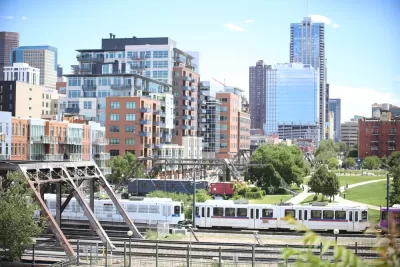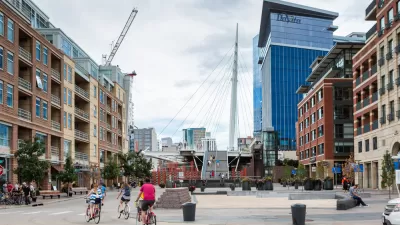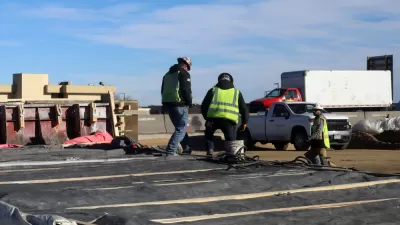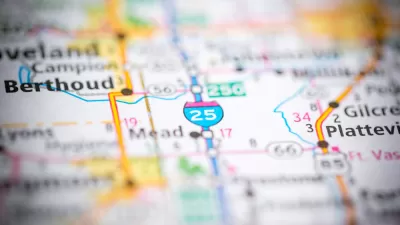Multiple funding plans are on the brink of reformulating the state of Colorado’s approach to transportation—away from cars and toward active transportation and high-capacity public transit.

“Rewrites of Colorado’s statewide 10-year priority project plan and two Front Range regional transportation plans are nearing adoption in the next month,” reports Jon Murray for the Denver Post.
“Especially in metro Denver, they shift big money from expanding pavement to other projects that make it easier, and safer, to travel on public transportation, on bike or on foot.”
The Denver Regional Council of Governments’ 2050 regional transportation plan, one of the plans up for approval this month, would speed up plans for bus rapid transit along busy arterial streets (see previous Planetizen coverage of the DRCOG’s 2020 regional transportation plan). “In the proposed update, those plans have been accelerated — with five projects now set out by 2030 along East Colfax Avenue in Denver, long in planning; a Colfax extension through Aurora; and long stretches of Federal Boulevard, Colorado Boulevard, and Colorado 119 between Boulder and Longmont. More rapid bus corridors would follow in the 2030s,” reports Murray.
Other plans include an updated 2045 regional plan by the North Front Range Metropolitan Planning Organization, which covers a region including Fort Collins and Greeley, and an update to the state’s ten-year project plan, under consideration his week by the Colorado Transportation commission.
Murray gives credit for the shift in transportation funding priority to legislation, SB21-200, approved by the Colorado State Legislature and signed by Governor Jared Polis last year. The Colorado Transportation Commission has already adopted new greenhouse gas emissions rules enabled by that legislation.
FULL STORY: More rapid bus lines, fewer highway expansions: New plans for metro Denver set shift in project funding

Maui's Vacation Rental Debate Turns Ugly
Verbal attacks, misinformation campaigns and fistfights plague a high-stakes debate to convert thousands of vacation rentals into long-term housing.

Planetizen Federal Action Tracker
A weekly monitor of how Trump’s orders and actions are impacting planners and planning in America.

Chicago’s Ghost Rails
Just beneath the surface of the modern city lie the remnants of its expansive early 20th-century streetcar system.

Bend, Oregon Zoning Reforms Prioritize Small-Scale Housing
The city altered its zoning code to allow multi-family housing and eliminated parking mandates citywide.

Amtrak Cutting Jobs, Funding to High-Speed Rail
The agency plans to cut 10 percent of its workforce and has confirmed it will not fund new high-speed rail projects.

LA Denies Basic Services to Unhoused Residents
The city has repeatedly failed to respond to requests for trash pickup at encampment sites, and eliminated a program that provided mobile showers and toilets.
Urban Design for Planners 1: Software Tools
This six-course series explores essential urban design concepts using open source software and equips planners with the tools they need to participate fully in the urban design process.
Planning for Universal Design
Learn the tools for implementing Universal Design in planning regulations.
planning NEXT
Appalachian Highlands Housing Partners
Mpact (founded as Rail~Volution)
City of Camden Redevelopment Agency
City of Astoria
City of Portland
City of Laramie





























